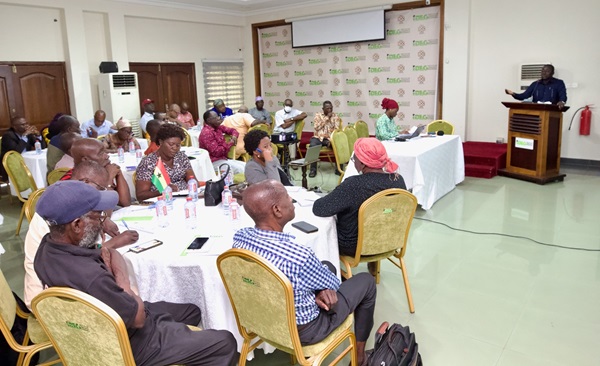
IDEG commences training of observers ahead of 2024 presidential and parliamentary elections
The Institute for Democratic Governance (IDEG) has launched a training session for regional coordinators and focal persons in preparation for the country’s upcoming December 7 general elections.
The training, which was held at IDEG House in Accra on Friday, October 11, this year, was attended by 30 coordinators from all 16 regions of the country, equipping them with the skills and knowledge necessary for effective election monitoring.
The session was led by officials from the Electoral Commission (EC) and elections management experts.
Speaking at the event, a Senior Research Fellow at IDEG, Mr. Kwesi Jonah, emphasised the importance of election observation in fostering transparency and trust in the electoral process.
He noted that IDEG and the Civic Forum Initiative (IDEG-CFI), the second-largest domestic election observer group in the country, regularly recruits, trains, and deploys volunteers to monitor election conduct across the country.
![]()
Mr. Jonah further stressed that the complexities of the 2024 elections, particularly the mistrust surrounding the EC’s operations made it imperative for civil society organisations (CSOs) and other independent bodies to actively monitor the elections and provide credible assessments, rather than leaving the task solely to political parties.
The training, co-funded by the European Union, Norwegian Embassy and Oxfam, was facilitated by resource persons from the EC, including Mr. Fred Tetteh and Mr. Michael Boadu, as well as Mr. Douglas Quartey, a CSO elections management expert.
The training marks a critical step in IDEG-CFI preparations to deploy about 1,500 election observers nationwide, aimed at ensuring peaceful, credible, and transparent elections before, during and after December elections.
The facilitators focused on key aspects of the election process, including the rules and regulations governing elections, the roles and responsibilities of observers, and reporting mechanisms for the conduct of the elections.
The EC officials highlighted that for the 2024 elections, approximately 7,251 polling stations have been identified as electoral flashpoints, a reduction from the number mapped during the 2020 elections.
Mr. Douglas Quartey also led a session on the operationalisation of the Elections Situation Rooms, which will serve as hubs for real-time election monitoring.
He explained the communication channels between observers in the field and the national command centre, emphasising the use of digital tools to ensure timely reporting of incidents to relevant bodies, such as the EC or the National Election Security Task Force.
